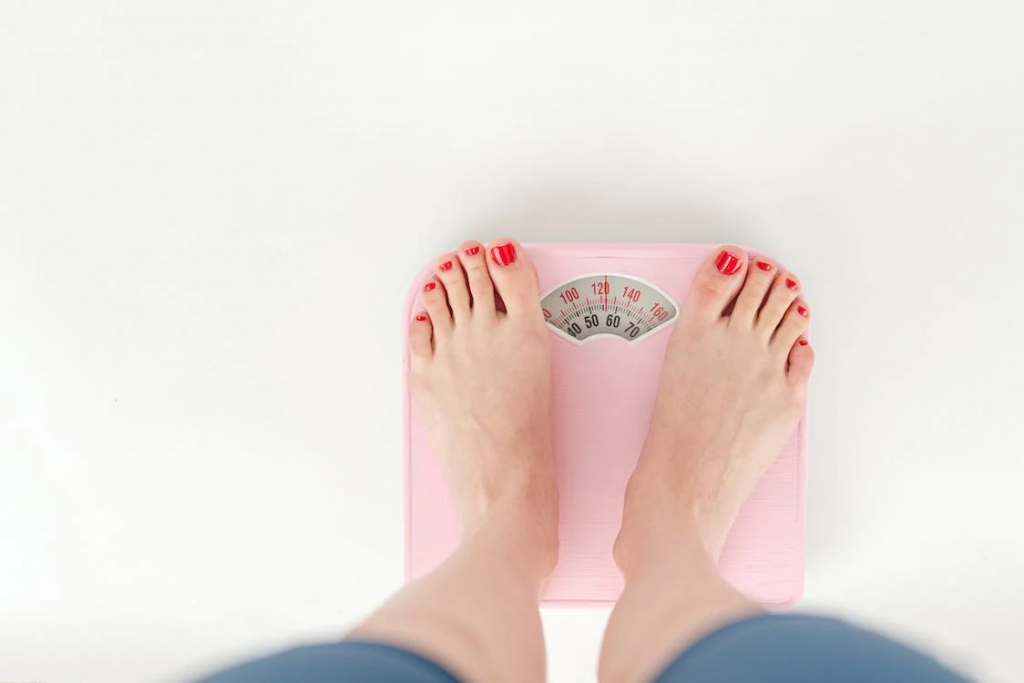Feeling frustrated that you’re gaining weight but don’t understand why? You’re not alone, for sure. Aside from overeating, other factors such as stress, life stages, jobs, and even gender can contribute to weight gain.
Obesity or overweight can lead to a variety of health problems. You can accomplish weight management and a healthy lifestyle with a healthy lifestyle and nutritious food.
You can achieve this, however, in a variety of ways. Let’s explore them.
Effective Ways to Lose Weight
If you want to lead a happy and healthy life, you should follow a few tips and adopt a healthy lifestyle. And they are:

Track your weight in a journal
The key to weight loss success is self-monitoring. Keep track of all the food you eat each day using a diary, a smartphone app, or a special website. Also, by keeping a weight log, they can monitor their progress.
People are considerably more likely to continue to a losing weight routine if they can gauge their progress in modest steps and spot visible improvements. People can use a BMI calculator to monitor their body mass index (BMI). Similarly, taking apple cider vinegar pills will help you achieve your weight loss goal.
Regular physical activity and exercise
In order to lose weight successfully, regular exercise, discipline, and intentionality are often essential. Exercising doesn’t necessarily speed up weight loss, but it can help.
In particular, weightlifting has many advantages. Lifting weights will burn calories, preventing your metabolic rate from slowing, a common weight loss side effect. When lifting weights is not possible, cardio exercises like hiking, jogging, walking, cycling, or swimming are excellent alternatives. People with low-risk coronary heart disease are unlikely to need a medical checkup before beginning an exercise program.
Avoid binge eating
Are you prone to overeating your favorite snack? It is likely that you would continue eating without realizing you were approaching the bottom of the packet.
Binge eating often leads to weight gain. Overweight people make up about two-thirds of patients. Weight gain occurs when you wolf a lot of food and don’t work off the calories. Bingers often struggle with weight issues. This leads to low self-esteem, which may increase binge eating.
Eat slowly
We have had trouble enjoying our food because of the tense days. You can’t seem to get away from your computer, chair, desk, and documents. Are you aware that eating quickly without understanding what you’re consuming is bad for you? Your elders may have told you to chew your food thoroughly and eat slowly.
When you are tense and distracted, you may eat more quickly. Work on controlling your stress. The workload cannot be avoided if there are tasks to perform and deadlines to meet. Similar problems occur as a result of stress. Physical and mental health are intertwined, so you must take good care of both. Focus on your physical health while prioritizing your emotional well-being.
Get enough sleep
Numerous studies show that obtaining enough sleep aids with weight loss. The worst that you can do to yourself is not getting enough sleep.
After a full day of work, you sit down again at night to finish any unfinished business or additional tasks that you were unable to do during the day.
Even though you know you must get up early; you stay up late. Sleeping through the night makes you need more sugar, which leads to overindulging in desserts. Therefore, avoid staying up late at night.
Stay hydrated
Remain hydrated. We occasionally misinterpret our body’s messages. For instance, acute thirst can resemble extreme hunger. So, regularly remind yourself to consume hydrating foods like fruits, vegetables, green tea, and water.
Additionally, have a glass of water 10-15 minutes prior to the main meal. Likewise, sip water for 45 minutes following a meal. It makes digestion better. Make it a habit to drink ACV water, it will further improve your digestion, as it is one of the health benefits of apple cider vinegar to aid in digestion.
Conclusion
In addition to these tips, you can lose weight more quickly in the first week and more gradually afterward by following a diet plan. During the first week, excess fat and water weight are generally lost equally. You may lose weight more quickly if you change your diet and exercise routine for the first time.
A safe quantity to lose is typically 1-2 pounds per week unless your doctor advises differently. Consult your doctor about a safe degree of calorie restriction if you want to lose weight more quickly than that.
Despite the lack of long-term studies, a low-carb diet can enhance your health in several ways other than helping you lose weight.

